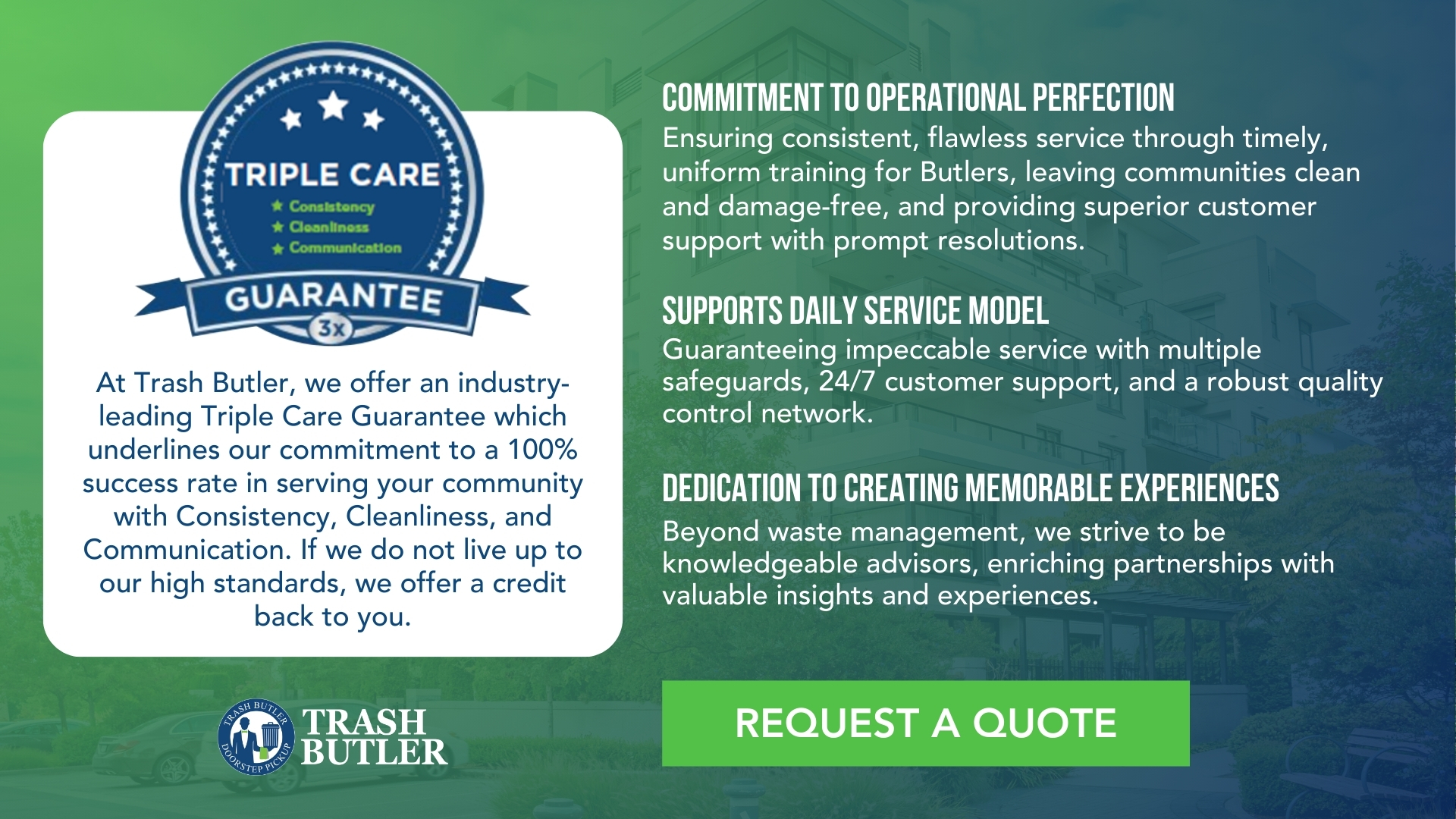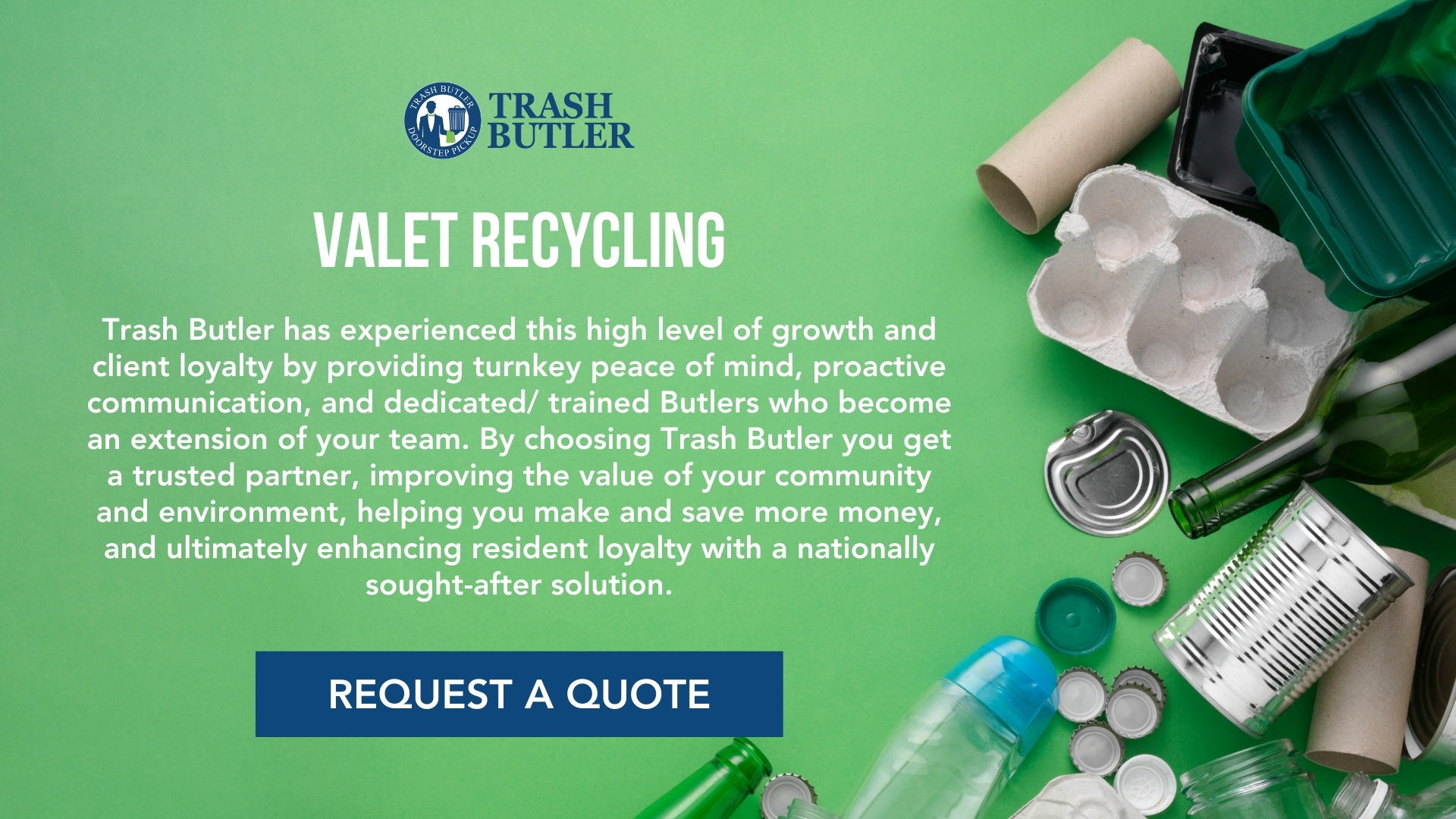Key Takeaways:
- Understanding Compliance: Learn the crucial aspects of California’s composting law, including organic waste diversion and the steps property managers must take to comply, enhancing environmental stewardship.
- Benefits Beyond Compliance: Explore the significant advantages of adhering to the composting law, from environmental impact reduction to potential cost savings and community engagement opportunities.
- Navigating Challenges: Uncover effective strategies and resources available to property managers for overcoming common implementation challenges, ensuring a smooth transition to sustainable waste management practices. Request a quote today!
California’s new composting law marks a significant step towards environmental sustainability, targeting the reduction of organic waste in landfills as part of the state’s climate change and methane emission reduction efforts. This legislation requires property managers to adopt composting and other eco-friendly waste management practices. For those managing properties in California, this isn’t just about legal compliance; it’s about joining a vital movement for the environment.
This guide aims to clarify the composting law, its impact on property management, and how property managers can integrate sustainable composting practices. By doing so, properties not only meet state requirements but also enhance their appeal to residents who value sustainability, showcasing the important role of property managers in fostering eco-friendly living. To effortlessly align with these requirements and elevate your property’s commitment to sustainability, consider Trash Butler’s doorstep valet trash service, offering a convenient and eco-friendly waste management solution that supports your property’s green initiatives.
Why Composting Matters: Environmental and Legal Perspectives
Composting is essential for both the environment and legal compliance, especially under California’s ambitious composting law aimed at tackling climate change. This process transforms organic waste into valuable, nutrient-rich soil, cutting down on methane emissions from landfills and promoting healthier soils and sustainable agriculture. California’s legislation, aiming to slash greenhouse gas emissions significantly by 2030, positions property managers as key players in achieving these environmental goals.
By adopting composting, they not only follow the law but also lead in eco-friendly practices, attracting residents who value sustainability. This shift towards greener living isn’t just good for the planet; it aligns with increasing environmental awareness and can make properties more attractive to a growing demographic of sustainability-minded tenants. Essentially, composting is a pivotal part of California’s broader strategy to combat climate change, offering a chance for property managers to contribute to a sustainable future.
Key Components of the Composting Law for Property Managers
California’s composting law introduces several key components that directly impact property managers and the way they handle waste management on their premises. Understanding these components is crucial for effective compliance and for turning a legal requirement into an opportunity for environmental leadership. Here are the primary aspects of the law that property managers need to be aware of:
Organic Waste Diversion
The law requires the diversion of organic waste from landfills. This includes food scraps, yard waste, paper products, and other biodegradable materials. Property managers must establish systems to collect and separate organic waste from other trash types.
Collection And Processing
Properties need to contract with waste collection services that provide organic waste recycling or composting. Alternatively, they can manage their own composting on-site, provided they comply with state regulations for organic waste processing.
Education And Training
Property managers are responsible for educating their staff and residents about the importance of composting and the correct ways to separate and dispose of organic waste. This may involve creating informational materials, hosting workshops, and providing clear labeling for waste disposal containers.
Reporting And Monitoring
Compliance with the composting law includes periodic reporting to state or local environmental agencies. Property managers must keep records of their waste diversion efforts and participate in monitoring programs to ensure compliance.
Infrastructure And Equipment
Implementing an effective composting program may require investment in infrastructure and equipment, such as compost bins, specialized dumpsters for organic waste, and signage for waste separation.
Compliance Steps for Property Managers
Ensuring compliance with California’s composting law requires a strategic approach from property managers. Here’s a step-by-step guide to help property managers navigate the compliance process effectively:
Assess Your Current Waste Management Practices
Begin by evaluating your property’s existing waste management system. Identify the types of waste generated and how it’s currently being disposed of. This assessment will help you understand the changes needed to comply with the composting law.
Develop A Plan For Organic Waste Diversion
Based on your assessment, create a detailed plan for diverting organic waste from landfills. This plan should include the setup of separate collection systems for organic waste, considering space for compost bins and ensuring easy access for residents and staff.
Partner With Waste Collection Services
If your property is not equipped to process organic waste on-site, partner with a certified waste collection service that offers organic waste recycling or composting. Ensure that the service aligns with state regulations and can provide the necessary documentation for compliance.
After ensuring your waste collection service aligns with state regulations, consider enhancing your community’s living experience with Trash Butler’s doorstep valet trash and recycling services. They provide a no-hassle solution for your residents, offering bagged trash and recyclable waste pickup 5-7 nights per week directly from their doorstep.
Educate And Engage Your Community
Education is key to successful composting. Develop and implement an education program for your residents and staff, highlighting the importance of composting and providing clear instructions on how to separate and dispose of organic waste correctly.
Monitor And Adjust Your Composting Program
After implementing your composting program, continuously monitor its effectiveness. Gather feedback from residents and staff, and adjust your strategies as needed to ensure maximum participation and efficiency.
Maintain Compliance Records
Keep detailed records of your waste management practices, including contracts with waste collection services, education efforts, and any infrastructure investments. These records will be essential for reporting to environmental agencies and demonstrating compliance with the composting law.
Stay Informed On Regulations And Best Practices
The regulatory landscape and best practices in waste management are continually evolving. Stay informed on any changes to the composting law and other related regulations to ensure your property remains in compliance.
Benefits of Complying with California’s Composting Law
For property managers, adhering to California’s composting law goes beyond mere compliance; it brings several tangible and intangible benefits that can enhance the value of their properties and contribute positively to the community and the environment. Here are some key benefits:
Environmental Impact
By diverting organic waste from landfills and reducing methane emissions, property managers play a direct role in combating climate change. Composting enriches the soil, reduces the need for chemical fertilizers, and promotes a healthier ecosystem.
Cost Savings
Efficient waste management and composting can lead to cost savings in the long run. By reducing the volume of waste sent to landfills, properties can lower their waste disposal costs. Additionally, on-site compost can be used to beautify landscapes, potentially saving on landscaping expenses.
Community Engagement
Implementing a composting program can serve as an excellent opportunity for community engagement. Residents who value sustainability will appreciate the effort, fostering a sense of community around shared environmental goals. This can enhance resident satisfaction and retention.
Enhanced Property Appeal
Properties that prioritize sustainability and environmental responsibility appeal to a growing segment of the population. By demonstrating a commitment to green practices, property managers can enhance their property’s marketability and attract eco-conscious tenants.
Regulatory Compliance
While compliance is a necessity, it also positions the property as a leader in environmental stewardship, potentially qualifying for incentives or recognition programs offered by government entities or environmental organizations.
Educational Opportunities
The process of implementing and managing a composting program offers educational opportunities for both staff and residents. This educational aspect can raise awareness about broader environmental issues and promote sustainable living practices beyond composting.
Future-Proofing
As environmental regulations become stricter and societal expectations around sustainability grow, properties that are already compliant with advanced regulations like California’s composting law will be ahead of the curve, reducing the need for future investments to catch up with new standards.
Final Thoughts
California’s move to make composting a key part of its environmental strategy opens up great opportunities for property managers to lead in sustainability. This law isn’t just about meeting new regulations; it’s a chance to align with the state’s broader goals of fighting climate change, reducing waste in landfills, and building sustainable communities. For those managing properties, embracing this law means they can play a significant part in environmental protection, enjoy community support, save costs, and achieve a sense of accomplishment in environmental stewardship. Although setting up composting might have its challenges, with the right approach and commitment, these can be overcome. Looking forward, the impact of widespread composting in California promises a major positive shift towards waste reduction and healthier soils, potentially inspiring similar actions nationwide.
For property managers, staying updated, making use of available support, and actively engaging in composting efforts are crucial steps towards contributing to a more sustainable future. To seamlessly integrate these efforts into your daily operations, consider Trash Butler’s doorstep valet trash service. It simplifies waste management for you and your tenants, aligning perfectly with sustainability goals by ensuring that recycling and composting are handled efficiently and effectively.
Frequently Asked Questions
What triggered the implementation of California’s composting law?
California’s composting law was enacted in response to the state’s ambitious climate action goals. It aims to reduce methane emissions from landfills, a significant source of greenhouse gas emissions, by diverting organic waste to composting and other recycling methods.
Does the composting law apply to all types of properties?
The law applies broadly to residential, commercial, and municipal properties. Specific requirements may vary based on the property type and size, with particular focus on multi-family residential properties and commercial establishments that generate significant organic waste.
What are the penalties for non-compliance with the composting law?
Penalties for non-compliance can include fines and enforcement actions by local or state environmental agencies. The nature and severity of penalties vary, emphasizing the importance of understanding and adhering to the law’s requirements.
Can property managers handle composting on-site, or must they use city services?
Property managers have the option to handle composting on-site if they can meet the state’s requirements for organic waste processing or they can coordinate with local waste management services to ensure proper organic waste disposal and composting.
Are there exemptions to the composting law for certain properties?
Some exemptions may apply, particularly for properties with limited space or those that generate minimal organic waste. It’s essential to consult local regulations to determine any applicable exemptions.
How can property managers educate residents about composting practices?
Education can be facilitated through informational brochures, digital newsletters, workshops, and clear signage near waste collection areas. Regular communication and engagement are key to fostering compliance and participation.
What support is available for properties looking to start composting?
Properties can seek support from local environmental agencies, waste management companies, and non-profit organizations specializing in waste reduction and composting. These entities can provide resources, training, and sometimes financial assistance.
How does the composting law impact waste collection fees?
Implementing composting practices may alter waste collection needs and fees. Some properties might see cost savings through reduced landfill waste, while others may incur additional costs for separate organic waste collection services.
Can compost produced on-site be used within the property?
Yes, compost produced on-site can be used for landscaping and gardening projects within the property, offering a sustainable way to enhance soil health and reduce the need for chemical fertilizers.
What future developments are anticipated in composting regulations?
As sustainability efforts evolve, further enhancements to composting regulations may include stricter diversion targets, expanded applicability, and increased support for composting initiatives, reflecting the state’s ongoing commitment to environmental stewardship.







